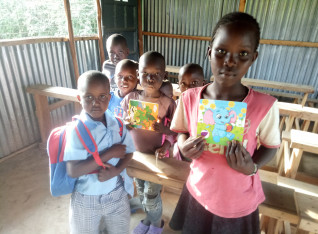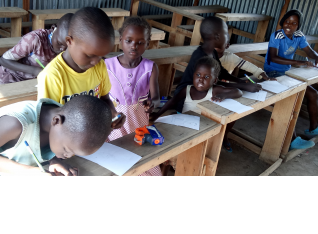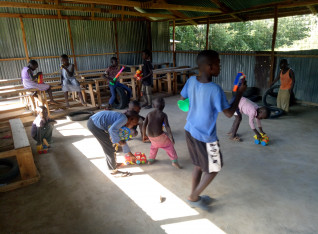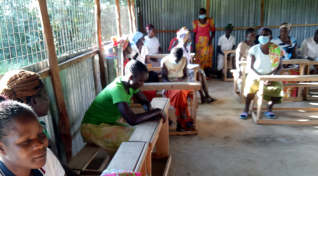Exciting adventure with The Sophia Foundation, Kenya
July 30, 20211.To support 50 vulnerable women with animals (goat/sheep) as a starter investment.
2.To build capacity of 50 vulnerable women in income generating activities (IGAs) and entrepreneurship skills in tailoring and hair dressing.
3.To provide counselling to 150 identified vulnerable women to increase their participation in public life as citizens with constitutionally mandated rights.
4.To improve the quality of life of the 150 identified vulnerable women by improving relations and coping capacities.
Project Strategy:
·Awareness
·Capacity building
·Table banking
·Enterprise development in basketmaking, cloth making and hair dressing
·Market linkages
Expected Results:
·Awareness of 150 women on issues of HIV management, ARVs adherence, nutrition, widow rights and mental health issues enhanced
·150 women imparted life skills training for their overall development
·Sustainable enterprise established and will considerably enhance the family incomes
·increased income and confidence will have multi-generational impact as it will help in securing a better future for the entire family of 150 women
Economic Empowerment Initiative of widows and vulnerable women
Rationale for the Project:
In Kenya, an estimated 8 million widows comprise nearly 15% of the population and rural widows remain disadvantaged by patriarchy, harmful cultural practices, HIV/Aids and extreme poverty.
According to Kenya’s National HIV survey, Kisumu is one of the top five counties with a prevalence of more than 9%.
Women in Lower Nyakach, a rural community, Kisumu county face many challenges such as financial, cultural and social neglect to severe psychological and emotional trauma. Most of these women lost their husbands to HIV/Aids and as well living with HIV. Most of them are house wives with no education, no skills or resources of their own. They solely depended on their husbands to provide. They are left with children they are unable to meet their basic needs. They need nutritious foods to keep healthy and strong in order to fend for their children.
Owing to the high level of poverty, high rates of polygamy, high prevalence of HIV/Aids and the impact of corona pandemic, there is a dire need to develop a program to support them recover and improve their livelihoods opportunities and empowered economically for a better life. Empowering them towards economic development will not only facilitate in improving the socio-economic condition of the women but will also help in the betterment of the entire family and community at large. Financial independent gained through entrepreneurship development will provide confidence and aspirations to greater heights.
The project is seeks funding to train the 50 women (25 in tailoring and 25 in hair dressing). Tailoring and hair dressing are some of the handy skills socially and economically viable to these target group due to limited education. Such skills will provide opportunities and enhance their capacities to engage in meaningful income generating activities.
After School Art project
The Sophia Foundation conducted a community survey to validate the actual needs needs of the community as they see or feel it and their recommendations. The following excerpt from the survey report is what made focus on the art project to develop and promote talents.
Educational Status of Children
The respondents were asked to state some recreational activities that their children engaged in while at home during school holidays or on weekends. Their responses included; fetching water/firewood and doing household chores. During the survey, water was mentioned a major problem in the area, and children spend most of their time fetching water and firewood.
Ninety-five percent (95%) of the respondents mentioned lack of funds to pay school fees as a major reason why children drop out of school. The other reasons mentioned, by 4% of the respondents, were teenage pregnancy and lack of parental guidance.
When asked about the best ways to support children in school, 55% of the respondents said through helping vulnerable parents to pay school fees, while 40% said by providing a school lunch for their children.
On the best ways to support children outside the school program, 98% of the respondents mentioned extracurricular activities, such as art activities, coaching, singing and sporting activities, stating that these will help develop the children’s talents, and also keep them busy and engaged, as a means of deterring deviant behaviours in the community. Some also mentioned that the school curriculum places too much emphasis on class work performance, and little attention is given to activities to develop talents.
When asked about the best place to set up an “After School Art (ASA) Project, an overwhelming majority of the respondents, 99%, said the community centre. This, they said, is closer and more accessible to the children.
Recommendations
Provide accessible water points (boreholes) for clean drinking water, to reduce pressure and burden on children and women in the community.
Provide school sponsorship program to facilitate access to education, and an opportunity for a better tomorrow for vulnerable children and the community.
Initiate an After School Art Project” for children to develop their talents, and mentor them.




